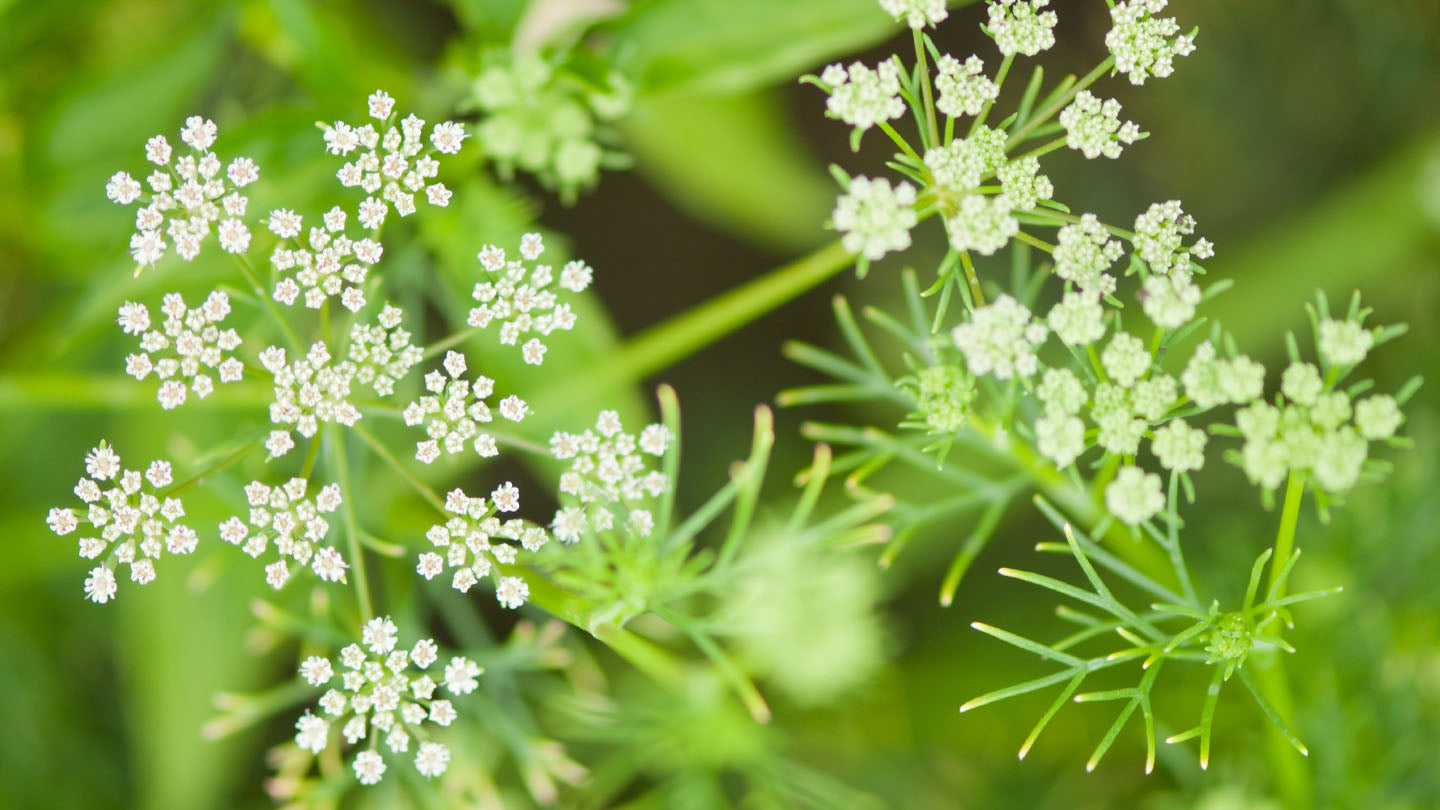02.26.2020
Spice Spotlight: Cumin Seeds

From a busy pakora stall in Mumbai, to an Athens gyro taverna, to a Los Angeles taqueria, cumin’s savory pungency has been enjoyed by billions of people for thousands of years. Ancient Rome’s Pliny the Elder described it as the best appetizer of all the condiments, and Egypt’s pharaohs were buried along with it. Cumin is an essential spice to some of the world’s most popular cuisines, especially Indian, Mediterranean, Middle Eastern, and Mexican.
What is Cumin?
 Cumin is the seed of the plant Cuminum cyminum—a member of the apiaceae family alongside its cousins parsley, caraway, and fennel (just to name a few.) Cumin is believed to be native first to Egypt’s Nile valley, quickly spreading to the eastern Mediterranean and southwest central Asia.
Cumin is the seed of the plant Cuminum cyminum—a member of the apiaceae family alongside its cousins parsley, caraway, and fennel (just to name a few.) Cumin is believed to be native first to Egypt’s Nile valley, quickly spreading to the eastern Mediterranean and southwest central Asia.
Today it is grown predominantly in India, China, and Mexico. We like our cumin to come from India, where the climate in the northwestern states of Gujarat and Rajasthan produce some of the world’s finest cumin seeds. (India produces and also consumes the most cumin in the world, where it is referred to as jeera.)

Cumin plants prefer a warm, moist climate, with sandy, loamy soil, and a long growing season. The plants bear small clusters of white or mauve flowers, from which the seeds pods soon form. The spice—technically a fruit—is ready to harvest when plants begin to wither and the seed pods turn brown.
How Do You Pronounce Cumin?
As spice merchants, even with our breadth of spice and culinary knowledge, many folks start with the simple questions like, “how do you pronounce cumin?”
Most of us prefer the KYOO-MIN pronunciation, but Merriam Webster also accepts KUH-MIN, and KOO-MIN.
What Does Cumin Taste Like?
The first notes of cumin are sharp, zesty, and bitter, similar to fresh parsley or carrot skin. The base notes of cumin are pungent, earthy, and nutty.
Cumin is often described as a warming spice, but if you crush a whole seed between your teeth you will also notice a slight menthol quality akin to fennel seed or caraway. Caraway and cumin are often mistaken for one another due to their similar appearance and taste.
Cumin’s strong, savory flavor is essential to many of our spice blends, especially our Sweet Curry Powder, Chili Powder, and Shawarma Seasoning. You will also find it present in our Ethiopian Berbere, Adobo Seasoning, and Classic Taco Seasoning.
The incredibly savory base flavors of cumin pair well with spices such as cardamom, cinnamon, allspice, clove, fennel, Greek oregano, nutmeg, fenugreek, thyme leaves, coriander, cilantro, sumac, and mint.
Some people find cumin’s strong flavor is for the birds, and they’re actually right. Cumin seeds are a popular ingredient in bird seed. Chicken farmers will feed their flock cumin as part of a balanced diet. Europeans in medieval times believed cumin kept poultry from straying from home.

Cooking With Cumin
Cumin is an essential spice for Indian curries and chutneys. The spice also works well in a variety of rice dishes, stews, soups, breads, pickles, barbecue sauces, and chili con carne recipes. It is best to be conservative when cooking with cumin as its flavor can easily overtake a dish. You can always add more later.
Cumin is favored by vegetarian and vegan cooks as it adds a savory, meaty quality to dishes.
Whole cumin seeds taste best when they are toasted first, bringing out the flavor of its essential oils. Toasted seeds can be added right to salads or on top of steamed rice. Frying cumin seeds in oil is the first step in many curry recipes, soon followed by diced onion and tomato.
Since cumin is a member of the carrot family, it’s only natural to use it in this carrot soup recipe. The spice also plays well with cabbage, parsnip, eggplant, onions, peppers, tomatoes, potatoes, pomegranate, dates, rice, beans, lentils, lamb, beef, chicken, and venison.
Another popular recipe that calls for cumin is the famous Turkish doner kebab. Greek and American cooks may know this dish better as the gyro, where garlic, oregano, and cumin are the dominant flavors. For a Turkish flair, add cloves, allspice, and sumac along with cumin.
You can find that recipe below, along with more of our favorite cumin-fused foods. If you have any questions about cumin or have a favorite recipe that calls for it, email us at spices@thespicehouse.com, or let us know in the comments below.
Homemade Gyro Meat
Curry Aloo
Creeping Reaper Hot Sauce
Elk and Bean Chili
Carrot Cumin Soup
Article by Geoff Marshall, Staff Writer




